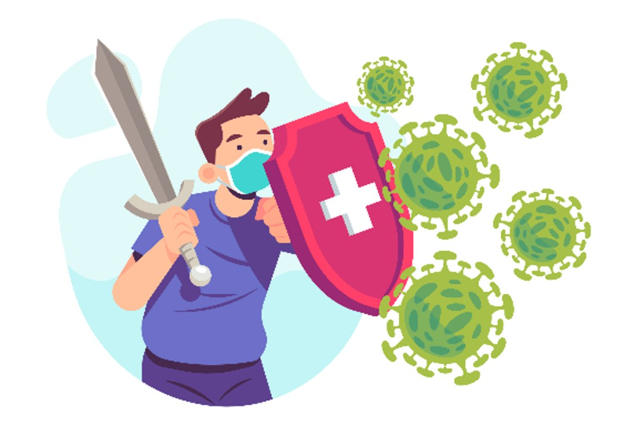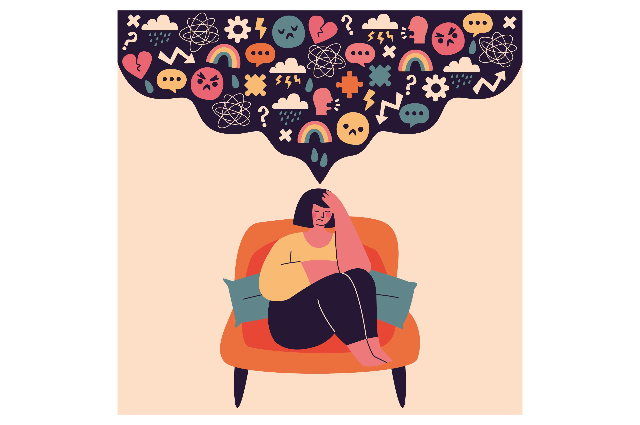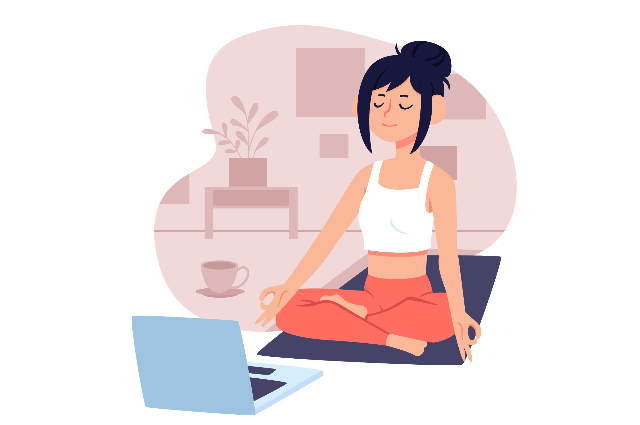COVID-19 has produced a human and economic crisis, unlike any recent memory. From global recession, economies being disrupted, lack of economic activity, and governments trying to take control and stock of the situation... it seems like years since we have had to embrace the pandemic, unfortunately, it's been more than a year.

The pandemic has caused a loss in production, income, employment, and well-being. With data saying that advanced economies were going to shrink by 7%, the world was losing faith in recouping. Studies show that in a time of recession, a negative impact on well-being can be witnessed.
Implications of the said virus are fast-moving and seem like the world is running through an obstacle course. It is difficult to maintain a healthy lifestyle in the middle of a crisis. The uncertainty, the woes related to finances, childcare, job security, internal struggles – what not? The crisis has caused an upheaval battle, nonetheless, there are short, medium, and long-term goals in place.
The implementation of said goals is not only towards economically-friendly and acting as a stimulus, but the lasting effects of (un)said rules and regulations are here to stay.
COVID-19 has brought upon a rise in small businesses, as a community, people have forgotten to ask someone, “Hello, how are you doing?”.
Your wellbeing constitutes your physical, mental, and social health. In the middle of a pandemic, where maintaining distance shows that you care – how is one supposed to keep up with all three factors?
The constant uncertainty about the future, social media messages, and of course the media coverage on the issue does not just target the virus but our manner of living life. This is bound to cause anxiety, paranoia, and a continuous overthinking of ‘what ifs’. The results in disrupting our sleeping patterns, eating habits, and of course, emotional outbursts. With having a limited number of people to vent out to, and the unnecessary stigma on ‘therapy’… maintaining wellbeing is an excruciating task.
1. How to improve your mental wellbeing?

Concentrate on ‘now’ and the ‘present’. Be aware of your feeling and studies show that this can help your mental health by coping up with traumatic events, improve your control over emotional conditions, and reduce anxiety.
When in stress, breathe in and breathe out. With various applications that pave the way forward towards accepting mental and emotional conditions, ‘mindful breathing’ and Pranayam are something that can be learned by being conscious of each passing moment.
Learn how to decentre, by removing negative thoughts through the art of meditating. Being generous and kind to people by practicing empathy shall go a long way in such troubled times. It is important to stock up on food and other essential items, but you must think of others as well. Kindness can cultivate a sense of community spirit and ensure that people have equal access to resources.
Being mindful of the use of social media and ensuring you inculcate knowledge from trustworthy sources is crucial – now more than ever! Misleading information is bound to raise your eyebrows and cause unnecessary anxiety. It is important to question yourself if the content is truthful, helpful, inspiring, and necessary of any kind before resharing information.
Let’s pave the way to prevent information that will promote discrimination and bigotry.
2. How to improve physical wellbeing?

There is not an iota of doubt of the disruptions this pandemic has caused. In such cases, it is important to stick to a routine. Studies show that routines are bound to decrease stress and improve mental health.
Improve your daily meal plan. Eat healthy, be healthy. Maintaining a healthy diet where following regular meal patterns is advised.
Improve your sleep cycle and stick to a schedule to ensure feeling refreshed. Evidence suggests that people who sleep better are productive, have better mental and physical health. This can cause improvement in learning, mood, and heart health.
Starting your day with energy is important – even if you are staying at home. Exercise and Yoga are great ways to improve your well-being.
While working from home has become the norm – improving productivity to keep yourself occupied should be the aim. Setting up a workstation, moving around, and scheduling your time are crucial points to keep in mind.
Now more than ever, people must try to find their heart’s calling. Practicing a new hobby that brings joy to your life can reduce stress, improve creativity, decrease anxiety and depression, promote relaxation, and prevent cognitive decline in the elderly.
3. How to improve social wellbeing?

It is important to stay virtually connected amongst family and friends. Reach out to people and remember to be empathetic to people who are living alone.
Being kind and practicing gratitude either by volunteering to help people in various means with COVID-19 or acting with kindness helps the community to rise.
Using social media as a positive influence can help people to stay motivated and be happy. This would cause a positive externality on your wellbeing as well.
Reduce screen time; Netflix, Prime, Hotstar, Instagram, etc. can wait. The applications are not going anywhere – but staying present in the moment, and rejoicing in life is a crucial matter.
While staying at home can cause a general sense of anxiety, isolating ourselves can be emotionally and physically draining.
In conclusion, it is important to be attuned to your mental state. Acting as a constant rock for yourself is crucial. First comes yourself, second would be the people around you. A support system is important. Breaking through the isolation and reaching out to your family and friends while focusing on what is in your power and control – is the first step. Accepting that there are certain things that you cannot change is how to move forward.
Taking care of your physical self and staying attuned to your body for signs of stress and anxiety is how to take care of yourself. Avoid manifestation of your pain and pay attention to the subtle signs.
While people are losing their loved ones, do not belittle your sense of grief. Remember, you are dealing with something life-changing as well.
Recognizing a few sore points can help you work through those emotions. Tell yourself that your feelings and emotions are valid.
Accepting the fact that it is a confusing time, it should not be easy to downplay your emotions and push those fears aside. Of course, you must support others, but what about yourself?
Always remember to reach out for help if required.
